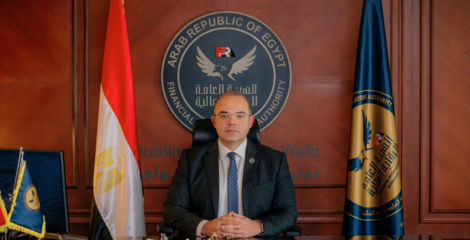- Egypt and the International Monetary Fund (IMF) finalize an expanded $8 billion agreement, signifying a crucial advancement in Egypt’s economic stabilization efforts, supported by Fund Mission Chief for Egypt, Ivanna Vladkova Hollar.
- Prime Minister Moustafa Madbouly underscores the government’s focus on rationalizing expenditure and promoting private sector investment in line with Egypt’s reform agenda following the IMF agreement.
- The recent announcement of a $24 billion investment from the Emirati sovereign fund ADQ, along with additional support from international partners like the World Bank, underscores Egypt’s concerted efforts towards monetary stability and economic development.
Egypt and the International Monetary Fund (IMF) have announced the finalization of an expanded $8 billion agreement, as per an official statement by the IMF. The agreement marks a significant milestone in Egypt’s economic stabilization efforts, endorsed by Fund Mission Chief for Egypt, Ivanna Vladkova Hollar.
The announcement follows a recent move by the Central Bank of Egypt to raise interest rates by 600 basis points, 6 percent, aimed at stabilizing the economy. With the overnight lending rate reaching 28.25% and the overnight deposit rate at 27.25%, the central bank seeks to curb inflation.
Moreover, Egypt is set to secure a $1.2 billion loan for environmental sustainability, further augmenting its IMF support to over $9 billion.
In light of the currency challenges since early 2022, where the Egyptian pound has depreciated significantly against the dollar, the Central Bank emphasizes its commitment to price stability through a transition to a flexible inflation-targeting regime.
James Swanston, a Middle East and North Africa economist at London-based Capital Economics, wrote according to CNBC: “This appears to be a positive step for Egypt on the path out of its current crisis.”
The recent announcement of a $24 billion investment from the Emirati sovereign fund ADQ, along with additional support from international partners like the World Bank, underscores Egypt’s concerted efforts toward monetary stability and economic development, Reuters reported.
Prime Minister Moustafa Madbouly highlights in an official statement that the focus is on rationalizing spending and fostering private sector investment as part of Egypt’s reform agenda post-IMF agreement.
The government’s strategy, aligned with the latest IMF pact, emphasizes exchange rate flexibility, fiscal discipline, and structural reforms to spur private-sector growth and optimize infrastructure spending.
After the announcement, the Egyptian pound saw a shift in trading, moving from approximately 30.85 to the dollar to about 50. On Wednesday, the central bank disclosed that the nation’s primary interest rate currently rests at 27.25%.
Amid these reforms, addressing poverty remains a key priority, with recent reports indicating a poverty rate of 27.9% in Egypt as of 2022, according to Statistica reports.
Egypt’s unemployment rate for 2022 was 6.96%, a 0.44% decline from 2021, according to Macrotrends.
If you see something out of place or would like to contribute to this story, check out our Ethics and Policy section.














